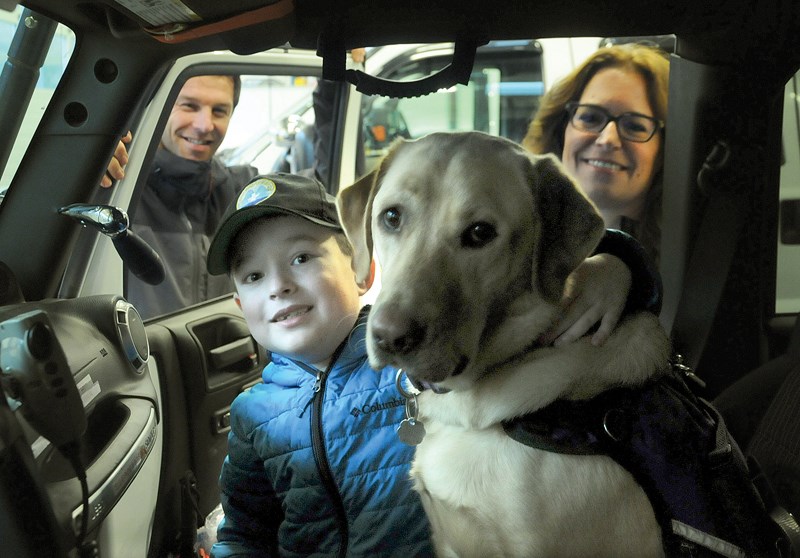She would lie down at night but she wouldn’t sleep.
“Safety is really what haunted me at night,” explains Kris Jenkinson.
Jenkinson is the mother of a seven-year-old boy named Kyle. Kyle is autistic, and largely unable to distinguish between what’s safe and what’s dangerous.
For Jenkinson, the thought of Kyle, or any child on the autistism spectrum, disappearing into the North Shore backcountry is terrifying.
For people with autism who are ages 10 to 43, the mortality rate is approximately double that of the general population, according to a 2008 study. Drowning is by far the most common cause of death, according to a three-year U.S. survey.
“Water for autistic people is a sensory outlet, it’s calming,” Jenkinson says.
With the backcountry just a stone’s throw away, the self-described mama bear decided North Shore Rescue’s volunteers should have “Autism 101.”
As luck would have it, she had a connection, having gone to Carson Graham secondary with NSR team leader Mike Danks.
About a quarter of a century after graduation day, the two remain close friends.
“There are many times when Mike’s had to throw his kids my way when the call has come,” she says.
Danks has participated in a few searches for autistic children, he says. But it’s only recently that he’s learned just how vast the autism spectrum is.
“It was about recognizing how they see the world,” he says, explaining the importance of tailoring the search to the individual.
Jenkinson agrees.
“Autism looks different on every single person. It does not manifest itself in the exact same way.”
In the case of a lost child with autism, it can be crucial for rescuers to know if they can swim, if they’re verbal, and if they have certain fixations, Jenkinson says.
Following a little urging from Jenkinson, NSR staged its first autism information session Wednesday night. District of North Vancouver firefighter Ben Wilson and Ryan Yao from the Canucks Autism Network led the workshop.
Approximately 40 volunteers showed up for Wednesday’s session, which was music to Jenkinson’s ears.
“It’s so important that first responders of all kinds, from SAR teams to police to ambulance to fire, have some training and some education in regards to the autism community,” she says. “A lot of these kids (with autism) perceive people in uniforms to be scary.”
Besides being more knowledgeable when they go on a search, Jenkinson is hopeful Wednesday’s session will help volunteers and their friends and families broaden their understanding of autism in their day-to-day lives.
“We don’t need judgment, we need kindness,” she says.
Helping an autistic child is complicated by the myriad unanswered questions around the spectrum disorder, Jenkinson says.
“We’re living in a grey world with uncertainty circling around us all the time,” she says. However, the family has made broad strides, particularly since autism service dog Clover came into their lives.
“She’s changed our life,” Jenkinson says. “Wherever Kyle is, Clover’s with him making sure he’s safe.”
Jenkinson prefers to say Kyle is autistic, rather than that he has autism.
“It’s not something you can catch,” she says.
Kyle chatters during the interview, reminding his mom that it’s time to pick up his sister.
But when he was young, non-verbal and frequently distressed, it was a hard time, Jenkinson says.
“Of all the people in the world, it was actually Mike Danks, my childhood friend, … he was the first person on this planet who had the courage and the compassion and the care to ask me what I needed.”
Wednesday’s session is only the beginning, and more workshops are planned to help NSR tailor their searches. But for Jenkinson, Wednesday night was a very encouraging start to making the North Shore a little safer and a bit more inclusive.
“So that moms like myself, at night, can actually catch our breath and put our heads down on the pillow and try to get a good night’s sleep.”



